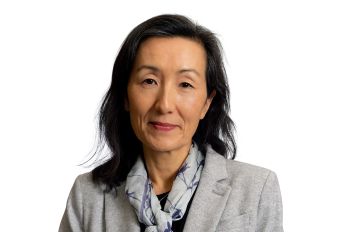In Memoriam: Max Kargman '29, real-estate developer and philanthropist
The Chicago-Kent community was saddened by the recent death of Max Kargman '29, a prominent real-estate developer and philanthropist who has generously supported our law school. He was 96.
Mr. Kargman was the son of Russian immigrants and grew up in low-income housing in Chicago. He took evening classes to earn his J.D. and LL.M. from Chicago-Kent at the onset of the Great Depression. As he began practicing law, he also took afternoon and evening classes to earn a Ph.B. in philosophy from the University of Chicago.
Mr. Kargman used his legal skills and banking knowledge to advise fellow attorneys about dealing with defaults among apartment building owners in the 1930s and later formed investor groups to purchase and rehabilitate some of those buildings.
After serving as a judge advocate for the Marines in World War II, he opened a property management office in Boston, where he worked when not studying for his Ph.D. in education at Harvard University. He was one of the first developers in the country to construct a federally subsidized housing development, a 540-unit apartment complex called High Point Village. He eventually developed several affordable housing buildings in the Boston area.
Mr. Kargman was most proud of his charitable ventures. He established the Massachusetts Children's Trust Fund, which supports organizations that teach parenting skills to men and women at risk of abusing their children. He also established Visiting Moms, a program that sends volunteer mothers to the homes of mothers at risk for abusing their children.
In 1996, Mr. Kargman collaborated with Harvard's School of Education to establish a tutoring and mentoring program for middle school students living in his housing developments. He also helped establish and fund Jump Start, a program that aims to get preschoolers more interested in reading. He and his wife, Marie, are the benefactors of the Max and Marie Kargman Fellowship Endowment, which funds the education of Chicago-Kent students with financial need.
In a 2001 profile in Chicago-Kent Newsletter, Mr. Kargman advised young lawyers to "realize that they're dealing with people, not cases." He felt the relationship between teacher and student is critical to the welfare of children, and funded research on the subject at Harvard.
Mr. Kargman helped countless families find affordable housing and tirelessly worked to provide opportunities for children in inner cities. The Chicago-Kent community extends its sympathies to Marie, Mr. Kargman's wife of 70 years; his sons William and Robert and daughter Donna (all lawyers); and his five grandchildren.



